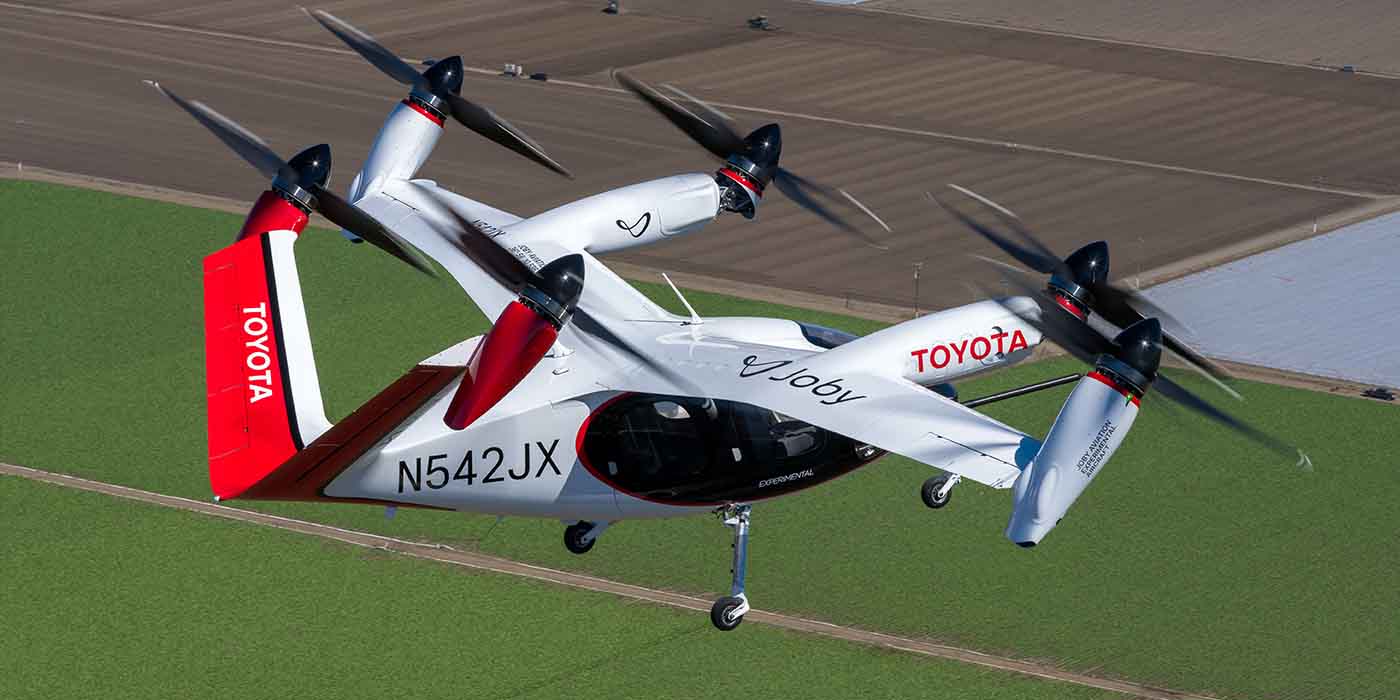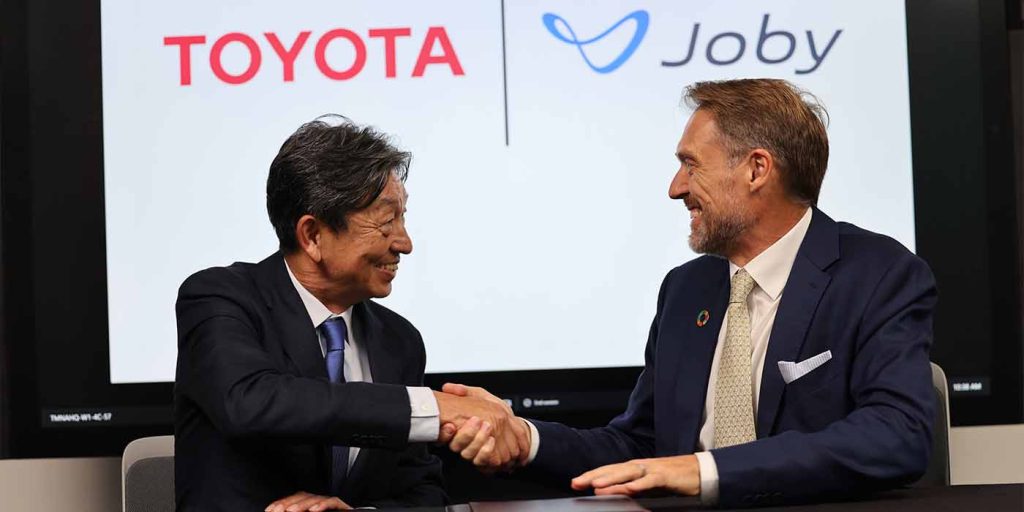
eVTOL air taxi developer Joby Aviation has secured a fresh round of funding from previous investor Toyota Motor Corporation, totaling $500 million. With its investment, Toyota’s total funding committed to the eVTOL specialist inches closer to $1 billion. The money will help Joby secure flight certification and begin commercial production of its sustainable aerial technology.
In terms of our coverage of electric vertical takeoff and landing (eVTOL) aircraft, Joby Aviation ($JOBY) has held a mainstay in the beat as it remains one of the more promising startups in a growing segment that is quickly becoming crowded.
Part of that previous coverage included Joby’s first flight with a pilot onboard in October 2023, which quickly led to a demonstration in New York City ahead of full-fledged eVTOL air taxi operations planned for sometime in 2025.
Since beginning as a small team of seven engineers back in 2009, Joby has grown to a staff of over 1,500 people who operate out of its headquarters in Marina, California, as well as additional offices in Santa Cruz, San Carlos, Washington, DC, and Munich, Germany.
Part of its success is early believers in its eVTOL technology, which has invested hundreds of millions in funding, including Toyota Motor Corporation. Since 2019, Toyota has been a strategic investor in Joby and its eVTOL technology. The Japanese OEM has even deployed dozens of its own engineers to work alongside Joby’s engineers to help the aviation company determine its eVTOL factory layout and manufacturing processes and prepare for high-volume production in the US.
Recently, Toyota nearly doubled its previous investments in Joby Aviation to help the company reach certification and scaled production of its eVTOL air taxis.

Toyota’s investment in Joby eVTOLs reaches $894 million
Per a recent release from Joby Aviation, Toyota Motor has committed to a new investment of $500 million which will be divided into two equal portions. The first half of the payment is targeted to close before the end of 2024, with the second to follow sometime in 2025.
When completed, the $500 million financial commitment will bring Toyota Motor’s total investment in Joby up to $894 million and will consist of cash in exchange for common stock. Tetsuo “Ted” Ogawa (seen above), the operating officer who inked the agreement on behalf of Toyota Motor Corporation, spoke about the automaker’s faith in Joby’s eVTOL technology and its desire to help contribute to “a shared vision of air mobility.”
With this additional investment, we are excited to see Joby certify their aircraft and shift to commercial production. We share Joby’s view that sustainable flight will be central to alleviating today’s persistent mobility challenges.
Toyota’s funding will help Joby in its ongoing quest to achieve flight certification and commercial production of its proprietary electric air taxis. The second payment, in particular, will rely on the finalization of terms related to a strategic alliance between both companies focused on commercial eVTOL manufacturing and other conditions.
In terms of eVTOL commercialization, Joby headway and recently rolled its third aircraft off its pilot production line in Marina, California, before breaking ground on a new expanded facility in The Golden State that will more than double its current production footprint. As of August 2024, Joby had completed 1/3 of the fourth and fifth stages of the type certification process before full-scaled eVTOL production and commercial air taxi operations with Toyota could begin.
You can learn more about Toyota’s investment and Joby’s eVTOL technology in the video below:
